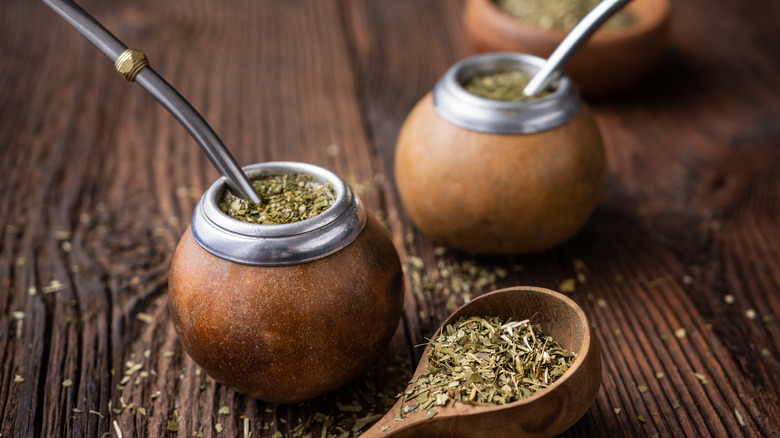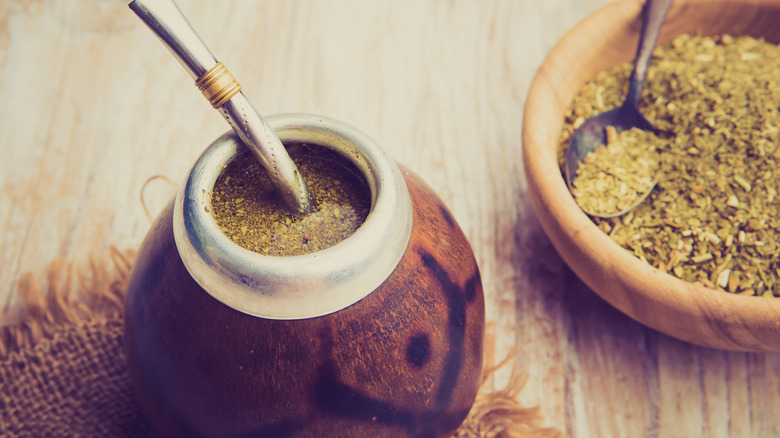The Natural Coffee Alternative That Packs A Major Caffeine Kick
While many find themselves on a firm team when it comes to the coffee vs. tea bifurcation, some options go beyond that binary. One of them is yerba mate, a South American herbal drink that has many vocally passionate adherents. Yerba mate is often viewed as an alternative to coffee and tea for some, providing ample energy without the crashing effects of most ubiquitous drinks. Yerba mate also contains many other healthful aspects.
Food & Wine says that although it's technically either, yerba mate tastes like tea and has a coffee-like effect. Made from an indigenous, South African plant that has been steeped in hot water, this drink is said to have originated in the pre-Colombian time, when the indigenous Guaran people of Paraguay discovered and aggressively began to cultivate a particular type of holly plant that they then turned into a beverage. After Spanish colonization, the drink began to be consumed throughout South America.
Ashleigh Parsons spoke with Food & Wine, noting that the drink is pungent, bitter, and vegetal and saying, "It can feel very trippy. The caffeine in it can really give you this high." For many, it has become a mash-up of an energy enhancer and a wellness beverage. In addition to its energizing effects, it also claimed that yerba mate could help bolster weight loss and boost concentration (via Food & Wine). Read ahead to learn more.
All about yerba mate
Interestingly enough, it is said that the drink actually contains a comparable amount of caffeine to coffee — about 80 mg per cup — according to Food & Wine. In addition, Mayo Clinic notes that it can reduce depression, help in losing weight, ease fatigue, and manage headaches, among other things. However, the site also notes that there is a potential concern, claiming that according to research, those who consume considerable quantities of yerba mate over extended periods may be more susceptible to certain cancer types, especially if they only consume extra-hot yerba mate as opposed to warm or cooled yerba mate.
Backpacker states that a ritualistic display of making yerba mate is steeped in history and tradition, involving tools such as gourds and bombillas (essentially the vessels which contain the drink and straws), which help to ensure a clean, smooth final product. Many drinking rituals also coincide with yerba mate consumption, according to Art of Tea, and these ceremonies are still performed today. The communal rituals involve people sitting and drinking this tea together.
Combining the unique taste, the healthy vitamins, minerals, and antioxidants, the energy boost, and the convivial nature of its consumption, yerba mate is a celebrated and tried-and-true herbal tea that fosters health, ritual, and conversations. Perhaps it may also now become part of your morning routine, involving a transcendent experience in addition to just a caffeine boost.

